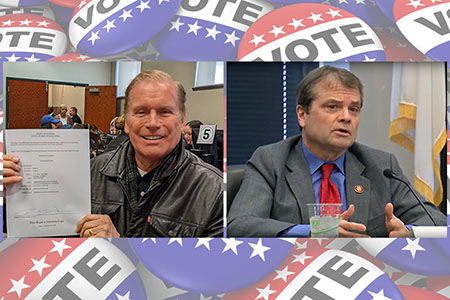Sponsored
Jan. 7, 2020 – If you are a tenant, there are laws you have to follow in order to have a good relationship with your landlord. However, there are certain cases and extraneous events that may prevent you from fulfilling your obligations and responsibilities as a tenant. When this happens, your landlord will serve you an eviction notice, and the eviction process might follow if they are no longer happy with you staying on their property. Getting an eviction notice may be surprising and distressing, especially if you have nowhere to go to and never had plans of moving out. As a tenant, you immediately want to know what your rights are and what your next move should be. Enumerated below are things you must take heed of and do if you have been served an eviction notice:
Communicate with your landlord immediately The 14-day notice may be served personally to you or to a person of suitable age and knowledge in your household. It may also be posted on your door or sent by mail. The worst thing you can do is ignore your landlord or ignore the notice about the non-payment of rent. You should know that your landlord will gain nothing from evicting you; in fact, they will get more losses due to legal fees and lost income. You should negotiate with your landlord about what you plan to do next. If your landlord doesn’t hear from you, they will think that their next recourse will be to file an eviction lawsuit. Negotiate If it is possible, you can still negotiate with your landlord before the allotted time period of your eviction expires. If you need to pay any outstanding amount, pay it or have an agreement on the terms of payment. If you have broken anything, check your terms of agreement and your degree of responsibility for the damage, and how you plan to compensate.
A landlord cannot evict you unless there is a court order for it If the lawsuit against you has been filed due to non-payment of rent, you must be able to prove that you do not owe your landlord ten non-payment of rent; otherwise, the lawsuit will move on. However, even if you get a 14-day pay or vacate notice, it doesn’t mean that it should be followed. You still can stay in your rental property. Remember that an eviction can only happen after a court order has been issued. You can stop your eviction from the non-payment of rent if you pay your rent. One thing you can do is to pay the rent for the accrued non-paid days. Avoid paying in cash, but if you do, make sure that you get a receipt. Some landlords will not accept money until after the court process has been completed. Remember that there are no exceptions to the non-payment of rent. People with young children who have experienced a sudden loss of job or have suffered from other unexpected tragedies are not exempted from paying rent properly. Also, unmade repairs, complaints against the landlord, or money your landlord owes you is not a valid reason for non-payment of rent.
Check the documentation of all rental payments If you think you’ve been given a wrongful eviction notice, you should check your documents and receipts of all the times you have paid your rent. Paying your rent and not getting a receipt for it can leave you vulnerable to claims that the money has never been received or has been lost. The best way to pay for your money is through a personal check or money order. You should photocopy the money order before you separate it from the stub to make sure you have proof. When you pay in cash, you should secure a receipt from your landlord. If you think your eviction is wrongful, you can also get a third-party witness to testify that you have paid the rent and that it was received aside from presenting the necessary documents.
|














